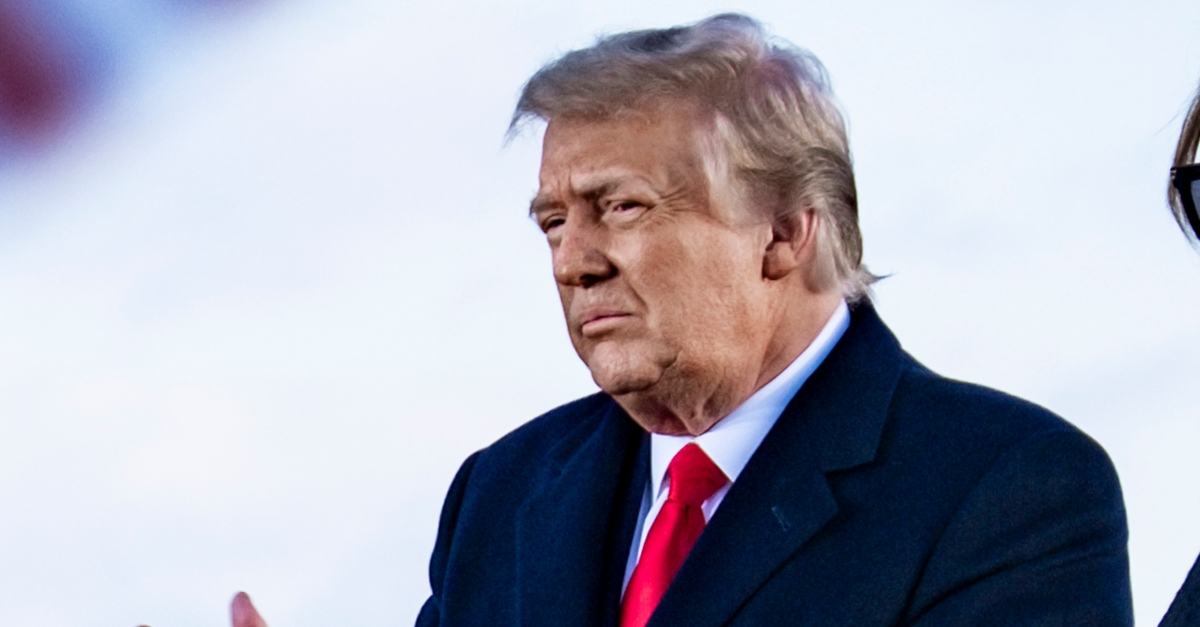
The Supreme Court rejected former President Donald Trump’s request to block the release of his administration’s records to the House committee investigating the Jan. 6 attack on the U.S. Capitol.
Shortly after the ruling, the House Select Committee to Investigate the Jan. 6 Attack on the U.S. Capitol announced that they already have begun to receive records that Trump hoped to suppress.
“We Have One President At a Time”
Trump’s application for Supreme Court review, presented before Chief Justice John Roberts, was set aside Wednesday by the high court in fewer than two pages.
“The questions whether and in what circumstances a former President may obtain a court order preventing disclosure of privileged records from his tenure in office, in the face of a determination by the incumbent President to waive the privilege, are unprecedented and raise serious and substantial concerns,” the unsigned order states.
The U.S. Court of Appeals for the D.C. Circuit noted that Trump is a former president, reminding him “we have one president at a time.” The appellate court went on to reject Trump’s claims “under any of the tests [he] advocated.”
“Because the Court of Appeals concluded that President Trump’s claims would have failed even if he were the incumbent, his status as a former President necessarily made no difference to the court’s decision,” the order continues. “Any discussion of the Court of Appeals concerning President Trump’s status as a former President must therefore be regarded as nonbinding dicta.”
Only Justice Clarence Thomas publicly noted that he would have granted Trump’s application.
“Concluding Otherwise Would Eviscerate the Executive Privilege”
Justice Brett Kavanaugh wrote separately to disagree with the D.C. Circuit’s suggestion that former presidents cannot invoke executive privilege.
“The Court of Appeals suggested that a former President may not successfully invoke the Presidential communications privilege for communications that occurred during his Presidency, at least if the current President does not support the privilege claim,” Kavanaugh wrote in a statement. “As this Court’s order today makes clear, those portions of the Court of Appeals’ opinion were dicta and should not be considered binding precedent going forward.”
His remarks on that point far exceed the length of the court’s denial of Trump’s challenge.
“A former President must be able to successfully invoke the Presidential communications privilege for communications that occurred during his Presidency, even if the current Pr esident does not support the privilege claim,” Kavanaugh opined. “Concluding otherwise would eviscerate the executive privilege for Presidential communications.”
On Oct. 18, Trump sued the Jan. 6 committee, its chairman Rep. Bennie Thompson (D-Miss.), the National Archives and Records Administration, and its archivist David Ferriero, asserting various privileges over the sought-after files. Trump asserted executive privilege over 770 pages of documents, including 46 pages of records from the files of former chief of staff Mark Meadows, ex-senior adviser Stephen Miller, and ex-deputy counsel Patrick Philbin, according to court filings.
“A Victory for the Rule of Law”
Trump also reportedly opposed releasing the White House Daily Diary and a call log between him and then-Vice President Mike Pence concerning Jan. 6.
Trump’s theories were swiftly rebuked at every level of the federal judiciary. U.S. District Judge Tanya Chutkan told Trump that “Presidents are not kings, and plaintiff is not president.”
In a joint statement the committee’s vice chair Rep. Liz Cheney (R-Wyo.), Thompson wrote: “The Supreme Court’s action tonight is a victory for the rule of law and American democracy.”
“The Select Committee has already begun to receive records that the former President had hoped to keep hidden and we look forward to additional productions regarding this important information,” the bipartisan lawmakers continued. “Our work goes forward to uncover all the facts about the violence of January 6th and its causes. We will not be deterred in our effort to get answers for the American people, make legislative recommendations to strengthen our democracy, and help ensure nothing like that day ever happens again.”
Jesse Binnall, an attorney for Trump behind a failed election challenge in Nevada, did not immediately respond to Law&Crime’s email requesting comment.
Read the ruling, below:
(Photo via Pete Marovich – Pool_Getty Images)